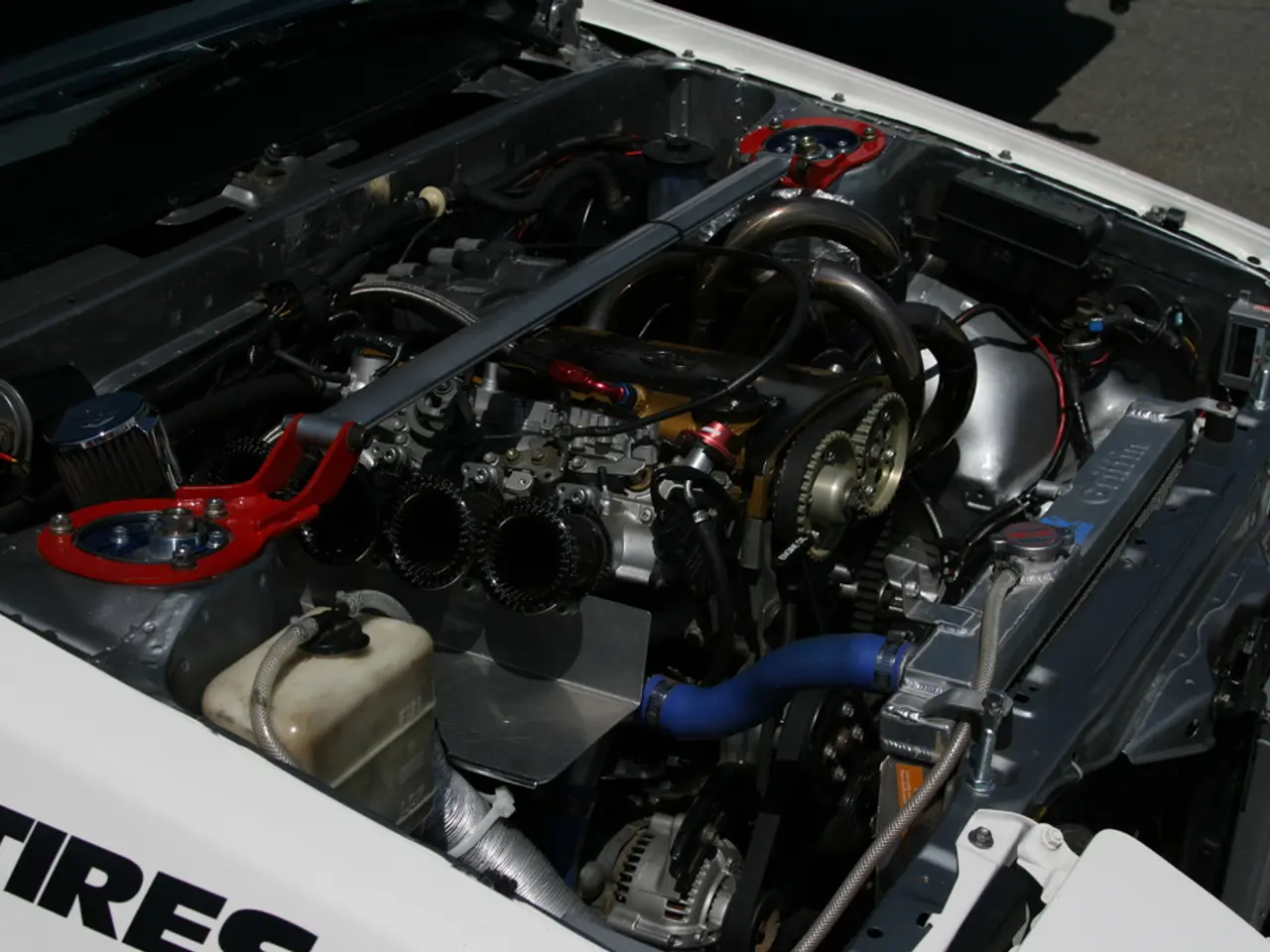Electric trucks from Mercedes-Benz utilize recycled lithium-ion batteries that have been refurbished.
In a significant stride towards sustainability and the circular economy, Mercedes-Benz Trucks has unveiled a reworked high-voltage CB400 battery for use in electric trucks, such as the eActros 300/400 and eEconic. Here are some key aspects of this innovative development:
## The Significance of Reworked Batteries
1. **Resource Efficiency and Reduced Emissions**: The reworked batteries are designed to extend the lifecycle of high-voltage batteries, conserving natural resources and reducing carbon emissions by about one-third compared to producing new batteries. This approach aligns with Daimler Truck's commitment to a circular economy, emphasizing the reuse and recycling of key components.
2. **Cost-Efficiency and Quality Assurance**: These reworked batteries are presented as a cost-effective alternative to new batteries while maintaining high quality and functionality. They undergo rigorous testing and are covered by the official Mercedes-Benz Trucks warranty, ensuring reliability and performance comparable to new batteries.
3. **Circular Economy Contribution**: The initiative supports a circular economy by promoting the reuse of high-quality components, thereby reducing waste and the demand for new raw materials. Batteries that cannot be refurbished are recycled, further minimizing waste.
4. **Potential for Second-Life Applications**: Apart from their use in electric trucks, these batteries can also be repurposed for stationary energy storage systems, extending their lifecycle even further.
## Impact on the Circular Economy
- **Sustainability Leadership**: Mercedes-Benz Trucks' commitment to remanufacturing and reusing batteries positions the company as a leader in sustainable practices within the automotive industry. It sets a precedent for other manufacturers to adopt similar circular economy strategies.
- **Environmental Benefits**: By reducing the need for new battery production, Mercedes-Benz is contributing to a decrease in greenhouse gas emissions and resource consumption, aligning with global efforts to mitigate climate change.
- **Economic Viability**: The remanufacturing process not only benefits the environment but also offers customers a more affordable option for battery replacement, making electric vehicles more economically viable.
Overall, the introduction of reworked high-voltage CB400 batteries by Mercedes-Benz Trucks reinforces the company's commitment to sustainability and the circular economy, offering a model for other industries to follow in reducing environmental impact while maintaining economic efficiency.
Christian Vrbek, team leader for remanufacturing zero emission vehicles in aftersales at Daimler Truck, stated that the CB400 reworked concept offers a cost-efficient and sustainable solution. Daimler Truck, the parent company of Mercedes-Benz Trucks, is aiming to operate its truck and bus manufacturing in line with the principles of the circular economy.
The reworked high-voltage CB400 battery is now available to customers for the first-generation Mercedes-Benz eActros 300/400 as well as the Mercedes-Benz eEconic.
[1] Daimler Truck Press Release, "Mercedes-Benz Trucks presents Genuine Reworked Batteries for the eActros and the eEconic," 30 March 2023. [2] The Driven, "Mercedes-Benz Trucks launches remanufactured electric vehicle batteries," 30 March 2023. [3] Renew Economy, "Mercedes-Benz Trucks launches remanufactured electric vehicle batteries," 30 March 2023.
Technology plays a crucial role in the reworked high-voltage CB400 batteries developed by Mercedes-Benz Trucks, as advanced testing methods are employed to ensure the batteries' quality and functionality are on par with new ones. Additionally, these remanufactured batteries can be repurposed for stationary energy storage systems, demonstrating the versatility of technology in promoting sustainability.




